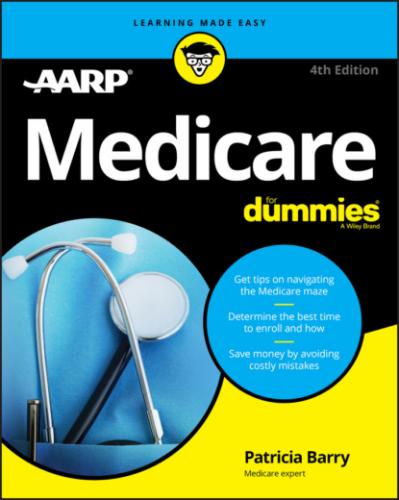Those who do not receive Social Security or Railroad Retirement benefits: These include people who have not yet applied for benefits; former federal, state, or local government workers who have their own pension systems; and people under age 65 whose disability benefits have been discontinued because they returned to work, but still qualify for Medicare.
Those who are new to Medicare, even if they do receive Social Security benefits: You must have received benefits in November and December and had Medicare premiums deducted from them (in advance) for the months of December and January to be held harmless during the rest of the year.
All those who pay the higher income-related premiums, regardless of whether they receive Social Security payments: Refer to the earlier section “Paying Higher-Income Premiums” for more info on whom this applies to.
Lower-income beneficiaries who receive Medicaid or whose Part B premiums are paid by their state: But in this case, it is the state that pays the increased premium, not the beneficiary.
This is where the Medicare Hold Harmless provision comes in. The provision ensures that people who receive Social Security won’t see significant reductions in their monthly payments when Medicare Part B premiums outpace the cost-of-living adjustment (COLA) each year.
For example, in 2016, those held harmless paid $104.90 a month, whereas the standard premium for everyone else was $121.80. In 2017, when the COLA was a measly 0.3 percent, the standard premium remained at a few dollars above that amount (depending on a person’s individual COLA increase) for people held harmless but went up to a record $134 for everyone else. In 2020, a 1.6 percent COLA adjustment was less than the 2.8 percent adjustment in 2019, but it will increase the average beneficiary’s total benefit by about $24 a month, which should cover the roughly $9 increase in Part B premiums.
Paying Medicare Taxes While Receiving Medicare Benefits
I’ve been asked this question quite frequently: “I’m over 65 and still working, but I’m enrolled in Medicare. Should my employer still be deducting Medicare payroll taxes from my earnings?”
I’ve also been asked the exact reverse of the preceding question: “I’m 60, and my employer recently quit taking Medicare and Social Security out of my wages. Should this be happening?”
www.irs.gov/pub/irs-pdf/fss8.pdf.
Конец ознакомительного фрагмента.
Текст предоставлен ООО «ЛитРес».
Прочитайте эту книгу целиком, купив полную легальную версию на ЛитРес.
Безопасно оплатить книгу можно банковской картой Visa, MasterCard, Maestro, со счета мобильного телефона, с платежного терминала, в салоне МТС или Связной, через PayPal, WebMoney, Яндекс.Деньги, QIWI Кошелек, бонусными картами или другим удобным Вам способом.
